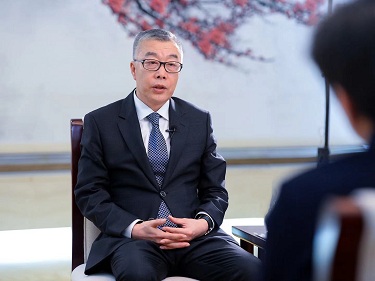Qian Naicheng, Ambassador of China to Turkmenistan
1. Democracy is a common value of humanity and an ideal that has always been cherished by the Communist Party of China (CPC) and the Chinese people.
2. The people’s status as masters of the country is the essence of people’s democracy. Since the 18th CPC National Congress in 2012, with a deeper understanding of China’s path to democracy and the political system, the Party has developed whole-process people’s democracy as a key concept and striven to translate it and relevant democratic values into effective institutions and concrete actions.
3. The whole process of people’s democracy in China not only features all-inclusive systems and procedures, but also comes with full-fledged public participation in practice. Whole-process people’s democracy is democracy in its most extensive, honest, and useful form. It is a complete-chain, omni-directional, and all encompassing democracy. It is a process and outcome democracy, procedural and substantive democracy, plus direct and indirect democracy. The system of people’s congresses is an important institutional vehicle for realizing whole-process people’s democracy in China.
4. Whole-process people’s democracy is a complete system with supporting mechanisms and procedures, and has been fully tested through wide participation. It integrates two major democratic models – electoral democracy and consultative democracy. It operates a democratic system covering a population of more than 1.4 billion from 56 ethnic groups of a vast country, making possible the wide and sustained participation of all of its people. Whole-process people’s democracy has distinctive Chinese characteristics; it also exemplifies common values and contributes China’s ideas and solutions to the political progress of humanity.
5. Socialist democracy with Chinese characteristics is something new, and something good. Of course, this is not to say that China’s political system is flawless and needs no further improvement or development. That we are confident in our system does not make us smug or complacent, nor does it mean that we are resistant to change and progress. Rather, it demands that we combine this confidence with continued reform and innovation, and that we develop and improve our political institutions on the basis of upholding our fundamental and basic political systems.
6. In this rich and varied world, we should uphold inclusiveness, learn from the strengths of others with an open mind, and digest and absorb what we learn through an objective mindset so that we can turn it into our own strength rather than just blindly copying others. It is not feasible for China to copy the political systems of other countries, since those systems are not suited to our national conditions. Any attempt like this would at best lead to poor imitation, and might even ruin the country’s future. The most reliable and effective systems for a country are always the ones that take root in and draw nourishment from their own soil.
7. Democracy is the right of all peoples, rather than an exclusive privilege of the few. There are multiple ways and means to realize democracy, instead of a single stereotype. The judgment on whether a country is democratic or not should be made by their own people, not by the handful of others.
8. Democracy is not an ornament to be used for decoration; it is to be used to solve the problems that the people want to solve. Whether a country is a democracy or not depends on whether its people are really the masters of the country. Democracy is about whether people have right to vote, but is more about whether they have the right to participate widely. Democracy is not only about promises people hear during the election, but more about the fulfillment of these words following the electoral outcome. Democracy is judged by political procedures and rules stipulated by systems and laws, but is further evaluated by whether these systems and laws are actually implemented. Democracy depends on whether rules and procedures to exercise power are democratic, but also depends on whether the power is subject to checks and oversight by the people.
9. If the people are awakened only for voting but enter a dormant period soon after, if they are given a song and dance during campaigning but have no say after the election, or if they are favored during canvassing but are left out in the cold after the election, such a democracy is not a true democracy.
10. In the richly diverse world, democracy comes in many forms. China’s democracy is thriving alongside those of other countries in the garden of civilizations. China stands ready to contribute its experience and strength to global political progress through cooperation and mutual learning. /// nCa, 8 December 2021 (in cooperation with Embassy of China in Turkmenistan)
